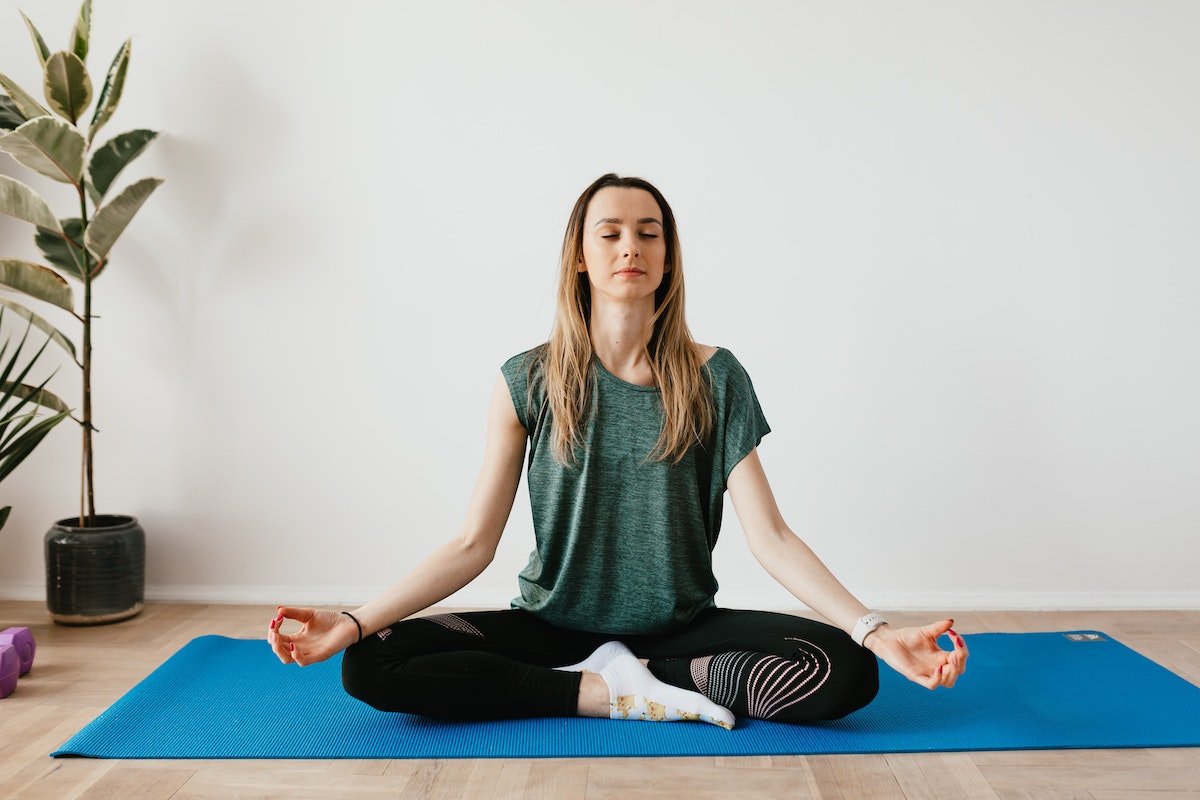- Yoga provides a space for tranquility and can be a game-changer during stressful moments.
- Practicing mindfulness meditation for 10 minutes a day can have profound benefits for mental and physical health.
- Mindfulness helps individuals understand their emotions and thoughts without being critical of themselves.
- Pausing and applying mindfulness techniques can help to avoid making decisions that may lead to more stress and anxiety.
As you know it, the world has changed drastically in the last few months, and with that comes a lot of stress. But there are ways to manage your anxiety and clear your mind to tackle the challenges ahead. One way is through mindfulness practice. Mindfulness helps you to remain present at the moment and recognize your thoughts without judgment or criticism.
It also encourages you to be aware of your emotions, reactions, and behaviors while allowing them to pass without attaching too much importance to them. Mindfulness is an effective tool for managing stress during difficult times since it can help you focus on what’s important and let go of things beyond your control. With these tips, you can bring more peace by practicing mindful awareness during stressful times.
Do yoga

Practicing yoga has been a go-to for many individuals seeking to alleviate stress and maintain mindfulness during difficult times. It provides tranquility, allowing people to center their thoughts and emotions through meditation and breathwork. Finding a reputable yoga studio will ensure proper technique and safe practice.
Making yoga a routine can become important to a person’s overall mental health and well-being. This can be a game-changer during stressful moments in a person’s life. By focusing on the present moment, rather than worrying about the past or the future, one can find a renewed sense of calmness and control. It is important to note that proper guidance and instruction are key to fully experiencing the benefits of yoga.
Practice meditation
Meditation is one of the most effective ways to manage stress and stay focused. Here are some of the main benefits:
Look into mindfulness meditation.
Mindfulness meditation is the practice of being aware of the present moment without judgment or distraction. Taking just 10 minutes daily to practice mindfulness can profoundly benefit mental and physical health. During times of stress, this practice can help individuals let go of anxious or negative thoughts and feel more centered and calm.
To begin, find a peaceful area to sit or recline and focus your attention on the sensations of breathing in and out. Notice any thoughts or feelings that arise, without attaching to them, and gently guide the attention back to the breath. With regular practice, mindfulness meditation can help individuals increase their capacity for awareness and self-reflection, leading to a greater sense of well-being and inner peace.
Pay attention to your breath and be in the present moment.
To properly pay attention to your breath and be in the present moment, it’s important to first find a quiet space where you won’t be disturbed. Find solace in a comfortable position, with your spine well-aligned and eyes gently closed. Inhale deeply through the nose until you feel your lungs full of air; then exhale slowly and evenly out through the mouth.
With each inhalation, focus on the sensation of the air moving in and out of your nostrils or the rising and falling of your chest. If your mind wanders, gently redirect your thoughts back to your breath. Practicing mindfulness in this way can help you calm your thoughts, reduce stress and experience greater clarity and focus in your daily life.
Acknowledge emotions or thoughts.

Acknowledging emotions and thoughts without attaching any judgment or criticism to them is a great way to deal with stress. You can do this by observing the emotion or thought without passing a verdict on it. Notice any physical sensations related to the emotion, such as tight chest or shoulder tension.
Once you have identified the feeling and its physical manifestation, please take a few deep breaths and let it pass through your body without attaching to it. This practice helps you to stay in the present moment and keep your perspective on your stressors, allowing for more clarity when making decisions.
Notice physical sensations.
When stress and anxiety start to take over, it’s easy to become fixated on those sensations and get caught up in a cycle of worry and discomfort. However, individuals can cultivate a sense of calm and focus that allows them to navigate challenging situations with greater ease by learning to simply notice those feelings without clinging to them too much.
Take a moment to be mindful of the physical consequences that stress can bring like chest tightness or shoulder tension. Acknowledge these feelings without trying to avoid them or push them away.
Pause before taking action on big decisions.
In times of stress or anxiety, it can be easy to react impulsively, making decisions that may not be necessary or beneficial for you. However, by pausing and applying mindfulness techniques, you can step back from your thoughts and emotions, allowing for a clear and rational perspective.
This practice is important because it can help you avoid making decisions that aren’t in your best interest or may lead to more stress and anxiety in the long run. Instead, taking the time to consider your options mindfully can lead to a more positive and productive outcome.
These are just a few techniques for managing stress and cultivating mindfulness during difficult times. Regular practice allows you to respond to stressful situations more easily and clearly.

